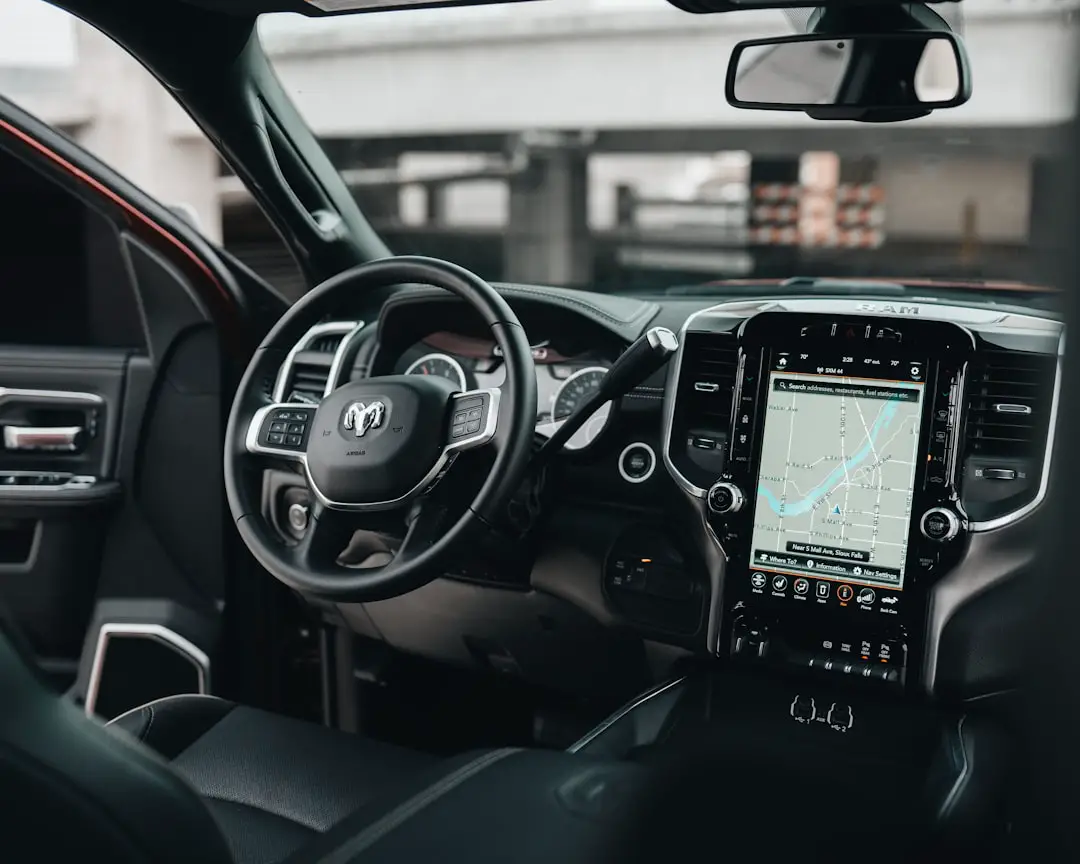Selling a car online can be an enticing prospect, offering convenience and access to a broader audience than traditional methods. However, it is essential to recognize the inherent risks associated with this approach. One of the most significant dangers is the potential for scams.
Unscrupulous individuals may pose as legitimate buyers, using various tactics to exploit sellers. For instance, they might request personal information or attempt to negotiate payment through untraceable methods, such as wire transfers or checks that bounce after the sale is completed. This can leave sellers vulnerable to financial loss and identity theft.
Moreover, there are safety concerns when meeting potential buyers in person. Arranging a meeting at a public location is advisable, but even then, there is no guarantee of safety. Instances of theft or assault during car sales have been reported, highlighting the importance of being vigilant and cautious.
Additionally, sellers may face challenges related to the vehicle’s condition and history. Buyers often conduct thorough inspections and may demand extensive documentation, which can lead to disputes if expectations are not aligned. Understanding these risks is crucial for anyone considering selling their car online, as it allows for better preparation and informed decision-making.
Key Takeaways
- Selling your car online comes with risks such as scams, fraudulent buyers, and potential safety concerns.
- Research and choose a reputable online platform with a good track record for selling cars and positive user reviews.
- Create a detailed and accurate listing with high-quality photos, thorough vehicle information, and honest descriptions.
- Set a realistic selling price based on market value, condition of the car, and comparable listings.
- Communicate with potential buyers safely by using secure messaging platforms and meeting in public, well-lit areas for test drives and inspections.
Researching and Choosing a Reputable Online Platform
Selecting the right online platform for selling a car is a critical step that can significantly influence the outcome of the sale. Numerous websites cater to car sales, each with its unique features, audience, and reputation. Popular platforms like Craigslist, eBay Motors, and Autotrader offer different levels of exposure and user engagement.
It is essential to research these platforms thoroughly to determine which one aligns best with your needs. For instance, eBay Motors provides auction-style listings that can attract competitive bids, while Craigslist allows for direct communication with local buyers. In addition to evaluating the platform’s reach and user base, it is vital to consider its security features and seller protections.
Some platforms offer built-in payment systems that help mitigate the risk of fraud, while others may lack such safeguards. Reading reviews and testimonials from other sellers can provide valuable insights into the reliability of a platform. Furthermore, understanding the fees associated with each site is crucial; some may charge listing fees or take a percentage of the sale price, which can impact your overall profit.
By conducting thorough research and selecting a reputable platform, sellers can enhance their chances of a successful transaction.
Creating a Detailed and Accurate Listing

A well-crafted listing is paramount when selling a car online, as it serves as the first impression potential buyers will have of your vehicle. To create an effective listing, it is essential to provide comprehensive details about the car’s specifications, condition, and history. This includes information such as the make, model, year, mileage, and any modifications or upgrades that have been made.
Additionally, including high-quality photographs from various angles can significantly enhance the appeal of the listing. Clear images showcasing both the exterior and interior of the vehicle help buyers visualize what they are considering purchasing. Transparency is key when describing the car’s condition.
Sellers should be honest about any mechanical issues or cosmetic flaws to avoid disputes later on. Providing a vehicle history report can also instill confidence in potential buyers by demonstrating that you have nothing to hide regarding accidents or title issues. Furthermore, including information about maintenance records and recent repairs can highlight the car’s reliability and care over time.
A detailed and accurate listing not only attracts more interest but also sets realistic expectations for buyers, ultimately facilitating a smoother transaction process.
Setting a Realistic Selling Price
| Factors | Metrics |
|---|---|
| Market Analysis | Comparable property prices, demand trends |
| Property Condition | Age, maintenance, renovations |
| Location | Neighborhood, amenities, school district |
| Economic Conditions | Interest rates, job market, inflation |
| Competitive Pricing | Other properties on the market |
Determining an appropriate selling price for your car is one of the most critical aspects of the selling process. Pricing too high may deter potential buyers, while pricing too low could result in financial loss. To arrive at a realistic price, sellers should conduct thorough market research by examining similar vehicles listed in their area.
Websites like Kelley Blue Book and Edmunds provide valuable tools for assessing a car’s value based on its make, model, year, mileage, and condition. These resources can help sellers establish a competitive price point that reflects current market trends. Additionally, considering factors such as seasonal demand can influence pricing strategies.
For example, convertibles may sell better in spring and summer months when buyers are more inclined to enjoy open-air driving. Conversely, four-wheel-drive vehicles might see increased interest during winter months when snow conditions prevail. Sellers should also be prepared to negotiate; setting an initial price slightly higher than the desired amount allows room for bargaining while still achieving a satisfactory sale price.
By carefully evaluating market conditions and employing strategic pricing tactics, sellers can maximize their chances of a successful sale.
Communicating with Potential Buyers Safely
Effective communication with potential buyers is essential for facilitating a smooth transaction while ensuring safety throughout the process. When responding to inquiries about your vehicle, it is advisable to maintain professionalism and clarity in your messages. Providing prompt responses demonstrates your seriousness as a seller and helps build trust with interested parties.
However, it is crucial to protect your personal information during these interactions. Avoid sharing sensitive details such as your home address or phone number until you feel confident about the buyer’s legitimacy. Utilizing secure messaging features provided by online platforms can enhance safety during communication.
Many platforms offer built-in messaging systems that allow you to communicate without revealing personal contact information until you are ready to do so. Additionally, be wary of red flags in communication; if a buyer seems overly eager to purchase without asking relevant questions or insists on unconventional payment methods, it may indicate a scam attempt. Establishing clear communication boundaries while remaining vigilant can help ensure that interactions with potential buyers remain safe and productive.
Avoiding Common Scams and Fraudulent Tactics

The online marketplace is rife with scams targeting unsuspecting sellers, making it imperative to be aware of common fraudulent tactics employed by scammers. One prevalent scheme involves buyers who offer to pay more than the asking price but request that the seller send back a portion of the funds before completing the transaction. This often results in sellers losing money when the initial payment turns out to be fraudulent or canceled after the seller has already sent funds back.
Another common tactic involves fake escrow services that promise secure transactions but are actually designed to steal money from sellers. Scammers may create convincing websites that mimic legitimate escrow services, luring sellers into using their services under false pretenses. To avoid falling victim to such scams, it is crucial to conduct thorough research on any payment method or service being proposed by potential buyers.
Always opt for secure payment methods that offer buyer and seller protections, such as PayPal or bank transfers through reputable institutions.
Conducting a Safe and Secure Transaction
Once you have found a legitimate buyer and agreed on terms, conducting a safe transaction becomes paramount. Meeting in a public place during daylight hours is advisable for both parties’ safety; locations such as busy parking lots or coffee shops provide visibility and reduce risks associated with private meetings. Bringing along a friend or family member can also enhance security during this phase of the sale.
When it comes time for payment, ensure that you receive funds before handing over the keys or title to the vehicle. If accepting cash, count it carefully in front of the buyer to confirm that it is legitimate before proceeding with the transaction. For electronic payments, verify that funds have cleared before finalizing the sale; this step is crucial in preventing issues related to bounced checks or fraudulent transactions.
By adhering to these safety measures during the transaction process, sellers can significantly reduce their risk of encountering problems.
Protecting Yourself After the Sale
After successfully selling your car online, it is essential to take steps to protect yourself from potential complications that may arise post-sale. One critical action is to notify your local Department of Motor Vehicles (DMV) about the sale promptly. This ensures that you are no longer held liable for any incidents involving the vehicle after it has left your possession.
Depending on local regulations, you may need to complete specific forms or provide proof of sale. Additionally, consider removing any personal information from the vehicle before handing over ownership. This includes clearing out any belongings from inside the car and ensuring that all personal data stored in infotainment systems or GPS devices has been deleted.
Furthermore, keeping copies of all transaction-related documents—such as bills of sale and correspondence with the buyer—can serve as valuable records should any disputes arise later on. By taking these precautionary measures after completing the sale, you can safeguard yourself against potential liabilities while ensuring a smooth transition for both you and the new owner of your vehicle.
If you’re looking to sell a car online without falling victim to scams, you may want to check out the article on AppsSoftwares that outlines important terms and conditions to be aware of when using online platforms for selling vehicles. Understanding these terms can help protect you from potential fraud and ensure a smooth transaction process.
FAQs
What are the common scams to watch out for when selling a car online?
Some common scams to watch out for when selling a car online include fake check scams, wire transfer scams, and overpayment scams. It’s important to be cautious and verify the legitimacy of any potential buyers.
How can I avoid getting scammed when selling a car online?
To avoid getting scammed when selling a car online, it’s important to only accept secure forms of payment, such as cash or a cashier’s check. Additionally, be wary of any buyers who are unwilling to meet in person or who pressure you to complete the transaction quickly.
What are some tips for safely selling a car online?
Some tips for safely selling a car online include meeting potential buyers in a public place, such as a parking lot, and bringing a friend or family member with you. It’s also a good idea to create a detailed listing with plenty of photos and information about the car to attract serious buyers.
Are there any reputable online platforms for selling a car?
Yes, there are several reputable online platforms for selling a car, such as Autotrader, Cars.com, and Craigslist. These platforms typically have safety measures in place to help protect sellers from scams.
